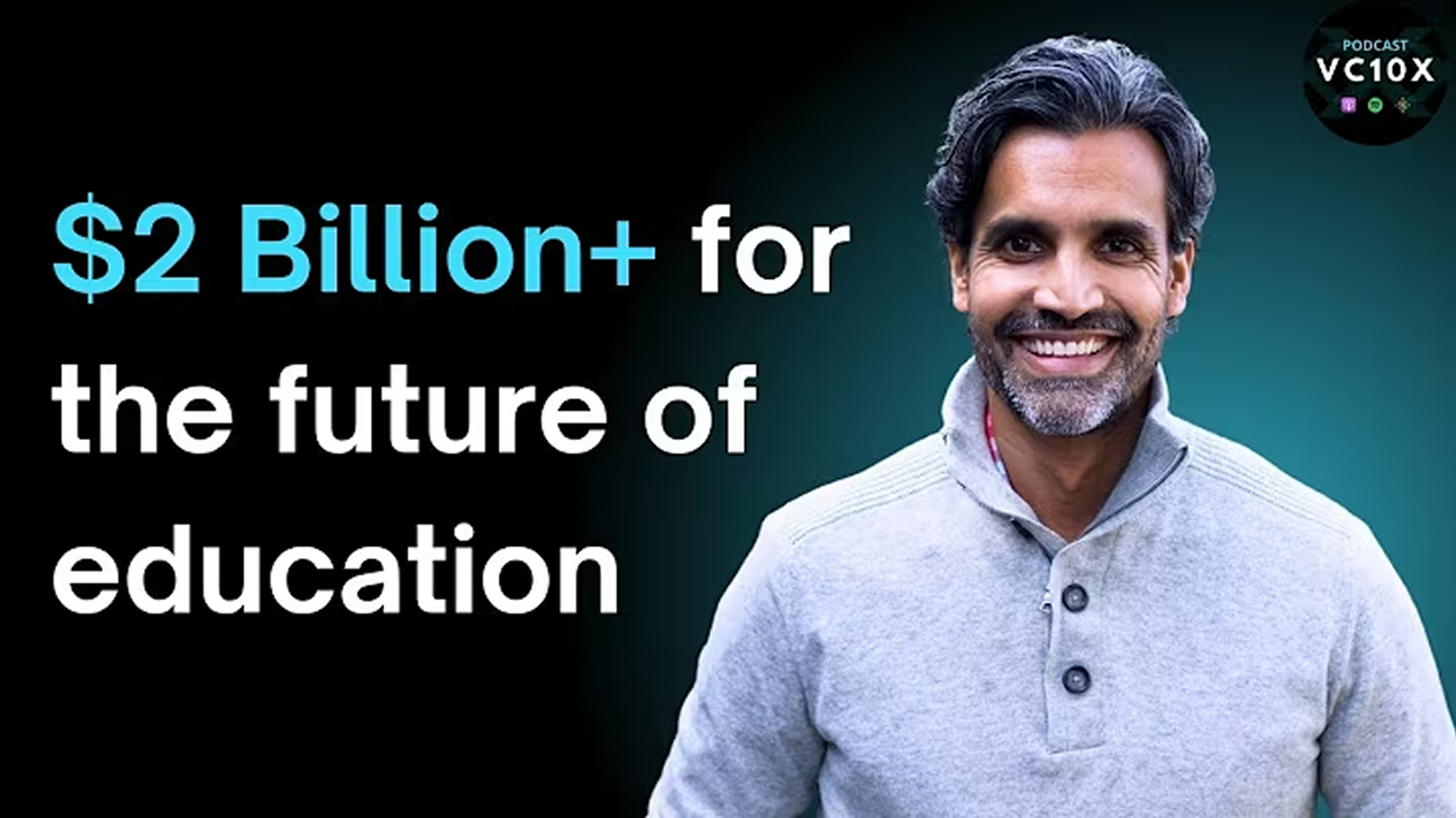Labster’s latest partnership, and what it tells us about the future of remote learning
Labster’s latest partnership, and what it tells us about the future of remote learning
Labster, a virtual science lab edtech company, today announced that it is partnering with California’s community college network to bring its software to 2.1 million students.
California Community Colleges claims to be the largest system of higher education in the country. The Labster partnership will provide 115 schools with 130 virtual laboratory simulations in biology, chemistry, physics and general sciences.
As COVID-19 has forced schools to shutter, edtech companies have largely responded by offering their software for free or through extended free trials. What’s new and notable about Labster’s partnership today is that it shows the first few signs of how that momentum can lead to a business deal.
Based in Copenhagen, Labster sells virtual STEM labs to institutions. The startup has raised $34.7 million in known venture capital to date, according to Crunchbase data. Labster customers include California State University, Harvard, Gwinnett Technical College, MIT, Trinity College and Stanford.
Lab equipment is expensive, and budget constraints mean that schools struggle to afford the latest technology. So Labster’s value proposition is that it is a cheaper alternative (plus, if students spill a testing vial in a virtual lab, there’s less clean up).
That pitch has slightly changed since COVID-19 forced schools across the world to shut down to limit the spread of the pandemic. Now, it’s pitching itself as the only currently viable alternative to science labs.
For many edtech companies, the surge of remote learning has been a large experiment. Often, edtech companies are giving away their product and technology for free to help as schools scramble to move operations completely digital.
For example, last week self-serve learning platforms Codecademy, Duolingo, Quizlet, Skillshare and Brainly launched a Learn From Home Club for students and teachers. Before that, Wize made its exam content and homework services available for free. And Zoom offered its video-conferencing software for free to K through 12 schools, which had mixed results.
Labster itself gave $5 million in free Labster credits to schools across the country. The list continues. Labster’s new deal shows edtech companies can secure new customers right now — without breaking the bank.
Labster CEO and co-founder Michael Bodekaer declined to give specifics on what the deal is worth. He did share that Labster works with schools one by one to understand how much they can, or want to, invest in teacher training and webinar support. He also confirmed that Labster does profit from the deal.
The long game for Labster, like many edtech companies, is that schools like the platform so much that these short-term stints have a better chance to lead to long-term relationships.“We’ll be keeping these discounts as long as we possibly can sustain as a company,” he said. “It looks like initially the discount was until August and now we’re extending it until the end of the year. If that continues, we may extend it even further.
”Pricing aside, the real struggle toward implementation for Labster, and honestly any other edtech company focused on remote learning, is the digital divide. Some students do not have access to a computer for video conferencing or even internet connection for assignments.
The COVID-19 pandemic has highlighted how many households across America lack access to the technology needed for remote learning. In California, Google donated free Chromebooks and 100,000 mobile hotspots to students in need.Bodekaer said that Labster is currently working on providing its software on mobile, and has worked with Google to make sure its product works on low-end computers like Chromebooks.
“We really want to be hardware agnostic and support any system or any platform that the students already have,” he said. “So that hardware does not become a barrier.
”While today’s partnership brings 2.1 million students access to Labster’s technology, it does not directly account for the percentage of that same group that might not have access to a computer in the first place. The true test, and perhaps success, of edtech will rely on a true hybrid of hardware and software, not one or the other.
Labster, a virtual science lab edtech company, today announced that it is partnering with California’s community college network to bring its software to 2.1 million students.
California Community Colleges claims to be the largest system of higher education in the country. The Labster partnership will provide 115 schools with 130 virtual laboratory simulations in biology, chemistry, physics and general sciences.
As COVID-19 has forced schools to shutter, edtech companies have largely responded by offering their software for free or through extended free trials. What’s new and notable about Labster’s partnership today is that it shows the first few signs of how that momentum can lead to a business deal.
Based in Copenhagen, Labster sells virtual STEM labs to institutions. The startup has raised $34.7 million in known venture capital to date, according to Crunchbase data. Labster customers include California State University, Harvard, Gwinnett Technical College, MIT, Trinity College and Stanford.
Lab equipment is expensive, and budget constraints mean that schools struggle to afford the latest technology. So Labster’s value proposition is that it is a cheaper alternative (plus, if students spill a testing vial in a virtual lab, there’s less clean up).
That pitch has slightly changed since COVID-19 forced schools across the world to shut down to limit the spread of the pandemic. Now, it’s pitching itself as the only currently viable alternative to science labs.
For many edtech companies, the surge of remote learning has been a large experiment. Often, edtech companies are giving away their product and technology for free to help as schools scramble to move operations completely digital.
For example, last week self-serve learning platforms Codecademy, Duolingo, Quizlet, Skillshare and Brainly launched a Learn From Home Club for students and teachers. Before that, Wize made its exam content and homework services available for free. And Zoom offered its video-conferencing software for free to K through 12 schools, which had mixed results.
Labster itself gave $5 million in free Labster credits to schools across the country. The list continues. Labster’s new deal shows edtech companies can secure new customers right now — without breaking the bank.
Labster CEO and co-founder Michael Bodekaer declined to give specifics on what the deal is worth. He did share that Labster works with schools one by one to understand how much they can, or want to, invest in teacher training and webinar support. He also confirmed that Labster does profit from the deal.
The long game for Labster, like many edtech companies, is that schools like the platform so much that these short-term stints have a better chance to lead to long-term relationships.“We’ll be keeping these discounts as long as we possibly can sustain as a company,” he said. “It looks like initially the discount was until August and now we’re extending it until the end of the year. If that continues, we may extend it even further.
”Pricing aside, the real struggle toward implementation for Labster, and honestly any other edtech company focused on remote learning, is the digital divide. Some students do not have access to a computer for video conferencing or even internet connection for assignments.
The COVID-19 pandemic has highlighted how many households across America lack access to the technology needed for remote learning. In California, Google donated free Chromebooks and 100,000 mobile hotspots to students in need.Bodekaer said that Labster is currently working on providing its software on mobile, and has worked with Google to make sure its product works on low-end computers like Chromebooks.
“We really want to be hardware agnostic and support any system or any platform that the students already have,” he said. “So that hardware does not become a barrier.
”While today’s partnership brings 2.1 million students access to Labster’s technology, it does not directly account for the percentage of that same group that might not have access to a computer in the first place. The true test, and perhaps success, of edtech will rely on a true hybrid of hardware and software, not one or the other.
Labster, a virtual science lab edtech company, today announced that it is partnering with California’s community college network to bring its software to 2.1 million students.
California Community Colleges claims to be the largest system of higher education in the country. The Labster partnership will provide 115 schools with 130 virtual laboratory simulations in biology, chemistry, physics and general sciences.
As COVID-19 has forced schools to shutter, edtech companies have largely responded by offering their software for free or through extended free trials. What’s new and notable about Labster’s partnership today is that it shows the first few signs of how that momentum can lead to a business deal.
Based in Copenhagen, Labster sells virtual STEM labs to institutions. The startup has raised $34.7 million in known venture capital to date, according to Crunchbase data. Labster customers include California State University, Harvard, Gwinnett Technical College, MIT, Trinity College and Stanford.
Lab equipment is expensive, and budget constraints mean that schools struggle to afford the latest technology. So Labster’s value proposition is that it is a cheaper alternative (plus, if students spill a testing vial in a virtual lab, there’s less clean up).
That pitch has slightly changed since COVID-19 forced schools across the world to shut down to limit the spread of the pandemic. Now, it’s pitching itself as the only currently viable alternative to science labs.
For many edtech companies, the surge of remote learning has been a large experiment. Often, edtech companies are giving away their product and technology for free to help as schools scramble to move operations completely digital.
For example, last week self-serve learning platforms Codecademy, Duolingo, Quizlet, Skillshare and Brainly launched a Learn From Home Club for students and teachers. Before that, Wize made its exam content and homework services available for free. And Zoom offered its video-conferencing software for free to K through 12 schools, which had mixed results.
Labster itself gave $5 million in free Labster credits to schools across the country. The list continues. Labster’s new deal shows edtech companies can secure new customers right now — without breaking the bank.
Labster CEO and co-founder Michael Bodekaer declined to give specifics on what the deal is worth. He did share that Labster works with schools one by one to understand how much they can, or want to, invest in teacher training and webinar support. He also confirmed that Labster does profit from the deal.
The long game for Labster, like many edtech companies, is that schools like the platform so much that these short-term stints have a better chance to lead to long-term relationships.“We’ll be keeping these discounts as long as we possibly can sustain as a company,” he said. “It looks like initially the discount was until August and now we’re extending it until the end of the year. If that continues, we may extend it even further.
”Pricing aside, the real struggle toward implementation for Labster, and honestly any other edtech company focused on remote learning, is the digital divide. Some students do not have access to a computer for video conferencing or even internet connection for assignments.
The COVID-19 pandemic has highlighted how many households across America lack access to the technology needed for remote learning. In California, Google donated free Chromebooks and 100,000 mobile hotspots to students in need.Bodekaer said that Labster is currently working on providing its software on mobile, and has worked with Google to make sure its product works on low-end computers like Chromebooks.
“We really want to be hardware agnostic and support any system or any platform that the students already have,” he said. “So that hardware does not become a barrier.
”While today’s partnership brings 2.1 million students access to Labster’s technology, it does not directly account for the percentage of that same group that might not have access to a computer in the first place. The true test, and perhaps success, of edtech will rely on a true hybrid of hardware and software, not one or the other.
Labster, a virtual science lab edtech company, today announced that it is partnering with California’s community college network to bring its software to 2.1 million students.
California Community Colleges claims to be the largest system of higher education in the country. The Labster partnership will provide 115 schools with 130 virtual laboratory simulations in biology, chemistry, physics and general sciences.
As COVID-19 has forced schools to shutter, edtech companies have largely responded by offering their software for free or through extended free trials. What’s new and notable about Labster’s partnership today is that it shows the first few signs of how that momentum can lead to a business deal.
Based in Copenhagen, Labster sells virtual STEM labs to institutions. The startup has raised $34.7 million in known venture capital to date, according to Crunchbase data. Labster customers include California State University, Harvard, Gwinnett Technical College, MIT, Trinity College and Stanford.
Lab equipment is expensive, and budget constraints mean that schools struggle to afford the latest technology. So Labster’s value proposition is that it is a cheaper alternative (plus, if students spill a testing vial in a virtual lab, there’s less clean up).
That pitch has slightly changed since COVID-19 forced schools across the world to shut down to limit the spread of the pandemic. Now, it’s pitching itself as the only currently viable alternative to science labs.
For many edtech companies, the surge of remote learning has been a large experiment. Often, edtech companies are giving away their product and technology for free to help as schools scramble to move operations completely digital.
For example, last week self-serve learning platforms Codecademy, Duolingo, Quizlet, Skillshare and Brainly launched a Learn From Home Club for students and teachers. Before that, Wize made its exam content and homework services available for free. And Zoom offered its video-conferencing software for free to K through 12 schools, which had mixed results.
Labster itself gave $5 million in free Labster credits to schools across the country. The list continues. Labster’s new deal shows edtech companies can secure new customers right now — without breaking the bank.
Labster CEO and co-founder Michael Bodekaer declined to give specifics on what the deal is worth. He did share that Labster works with schools one by one to understand how much they can, or want to, invest in teacher training and webinar support. He also confirmed that Labster does profit from the deal.
The long game for Labster, like many edtech companies, is that schools like the platform so much that these short-term stints have a better chance to lead to long-term relationships.“We’ll be keeping these discounts as long as we possibly can sustain as a company,” he said. “It looks like initially the discount was until August and now we’re extending it until the end of the year. If that continues, we may extend it even further.
”Pricing aside, the real struggle toward implementation for Labster, and honestly any other edtech company focused on remote learning, is the digital divide. Some students do not have access to a computer for video conferencing or even internet connection for assignments.
The COVID-19 pandemic has highlighted how many households across America lack access to the technology needed for remote learning. In California, Google donated free Chromebooks and 100,000 mobile hotspots to students in need.Bodekaer said that Labster is currently working on providing its software on mobile, and has worked with Google to make sure its product works on low-end computers like Chromebooks.
“We really want to be hardware agnostic and support any system or any platform that the students already have,” he said. “So that hardware does not become a barrier.
”While today’s partnership brings 2.1 million students access to Labster’s technology, it does not directly account for the percentage of that same group that might not have access to a computer in the first place. The true test, and perhaps success, of edtech will rely on a true hybrid of hardware and software, not one or the other.
Labster, a virtual science lab edtech company, today announced that it is partnering with California’s community college network to bring its software to 2.1 million students.
California Community Colleges claims to be the largest system of higher education in the country. The Labster partnership will provide 115 schools with 130 virtual laboratory simulations in biology, chemistry, physics and general sciences.
As COVID-19 has forced schools to shutter, edtech companies have largely responded by offering their software for free or through extended free trials. What’s new and notable about Labster’s partnership today is that it shows the first few signs of how that momentum can lead to a business deal.
Based in Copenhagen, Labster sells virtual STEM labs to institutions. The startup has raised $34.7 million in known venture capital to date, according to Crunchbase data. Labster customers include California State University, Harvard, Gwinnett Technical College, MIT, Trinity College and Stanford.
Lab equipment is expensive, and budget constraints mean that schools struggle to afford the latest technology. So Labster’s value proposition is that it is a cheaper alternative (plus, if students spill a testing vial in a virtual lab, there’s less clean up).
That pitch has slightly changed since COVID-19 forced schools across the world to shut down to limit the spread of the pandemic. Now, it’s pitching itself as the only currently viable alternative to science labs.
For many edtech companies, the surge of remote learning has been a large experiment. Often, edtech companies are giving away their product and technology for free to help as schools scramble to move operations completely digital.
For example, last week self-serve learning platforms Codecademy, Duolingo, Quizlet, Skillshare and Brainly launched a Learn From Home Club for students and teachers. Before that, Wize made its exam content and homework services available for free. And Zoom offered its video-conferencing software for free to K through 12 schools, which had mixed results.
Labster itself gave $5 million in free Labster credits to schools across the country. The list continues. Labster’s new deal shows edtech companies can secure new customers right now — without breaking the bank.
Labster CEO and co-founder Michael Bodekaer declined to give specifics on what the deal is worth. He did share that Labster works with schools one by one to understand how much they can, or want to, invest in teacher training and webinar support. He also confirmed that Labster does profit from the deal.
The long game for Labster, like many edtech companies, is that schools like the platform so much that these short-term stints have a better chance to lead to long-term relationships.“We’ll be keeping these discounts as long as we possibly can sustain as a company,” he said. “It looks like initially the discount was until August and now we’re extending it until the end of the year. If that continues, we may extend it even further.
”Pricing aside, the real struggle toward implementation for Labster, and honestly any other edtech company focused on remote learning, is the digital divide. Some students do not have access to a computer for video conferencing or even internet connection for assignments.
The COVID-19 pandemic has highlighted how many households across America lack access to the technology needed for remote learning. In California, Google donated free Chromebooks and 100,000 mobile hotspots to students in need.Bodekaer said that Labster is currently working on providing its software on mobile, and has worked with Google to make sure its product works on low-end computers like Chromebooks.
“We really want to be hardware agnostic and support any system or any platform that the students already have,” he said. “So that hardware does not become a barrier.
”While today’s partnership brings 2.1 million students access to Labster’s technology, it does not directly account for the percentage of that same group that might not have access to a computer in the first place. The true test, and perhaps success, of edtech will rely on a true hybrid of hardware and software, not one or the other.


.svg)
.png)







.jpg)




.png)





